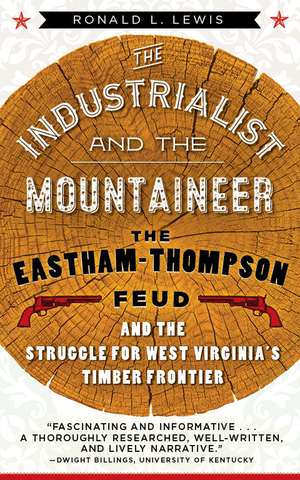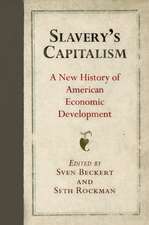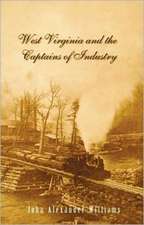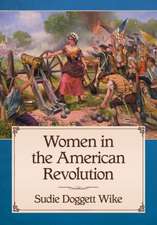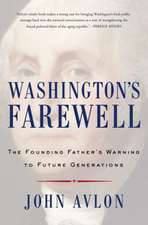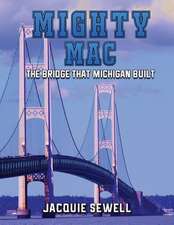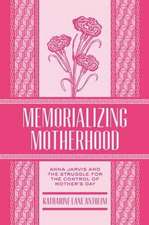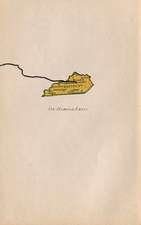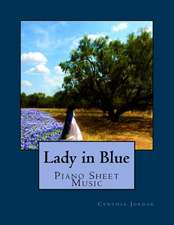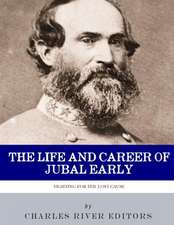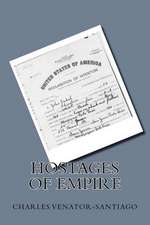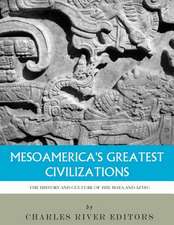The Industrialist and the Mountaineer: The Eastham-Thompson Feud and the Struggle for West Virginia's Timber Frontier: WEST VIRGINIA & APPALACHIA
Autor RONALD L. LEWISen Limba Engleză Paperback – mar 2017
In 1897 a small landholder named Robert Eastham shot and killed timber magnate Frank Thompson in Tucker County, West Virginia, leading to a sensational trial that highlighted a clash between local traditions and modernizing forces. Ronald L. Lewis’s book uses this largely forgotten episode as a window into contests over political, environmental, and legal change in turn-of-the-century Appalachia.
The Eastham-Thompson feud pitted a former Confederate against a member of the new business elite who was, as a northern Republican, his cultural and political opposite. For Lewis, their clash was one flashpoint in a larger phenomenon central to US history in the second half of the nineteenth century: the often violent imposition of new commercial and legal regimes over holdout areas stretching from Appalachia to the trans-Missouri West. Taking a ground-level view of these so-called “wars of incorporation,” Lewis’s powerful microhistory shows just how strongly local communities guarded traditional relationships to natural resources. Modernizers sought to convict Eastham of murder, but juries drawn from the traditionalist population refused to comply. Although the resisters won the courtroom battle, the modernizers eventually won the war for control of the state’s timber frontier.
The Eastham-Thompson feud pitted a former Confederate against a member of the new business elite who was, as a northern Republican, his cultural and political opposite. For Lewis, their clash was one flashpoint in a larger phenomenon central to US history in the second half of the nineteenth century: the often violent imposition of new commercial and legal regimes over holdout areas stretching from Appalachia to the trans-Missouri West. Taking a ground-level view of these so-called “wars of incorporation,” Lewis’s powerful microhistory shows just how strongly local communities guarded traditional relationships to natural resources. Modernizers sought to convict Eastham of murder, but juries drawn from the traditionalist population refused to comply. Although the resisters won the courtroom battle, the modernizers eventually won the war for control of the state’s timber frontier.
| Toate formatele și edițiile | Preț | Express |
|---|---|---|
| Paperback (1) | 148.11 lei 3-5 săpt. | |
| West Virginia University Press – mar 2017 | 148.11 lei 3-5 săpt. | |
| Hardback (1) | 472.31 lei 6-8 săpt. | |
| West Virginia University Press – 28 feb 2017 | 472.31 lei 6-8 săpt. |
Din seria WEST VIRGINIA & APPALACHIA
-
 Preț: 158.10 lei
Preț: 158.10 lei -
 Preț: 210.64 lei
Preț: 210.64 lei -
 Preț: 240.00 lei
Preț: 240.00 lei -
 Preț: 181.23 lei
Preț: 181.23 lei -
 Preț: 141.70 lei
Preț: 141.70 lei -
 Preț: 164.10 lei
Preț: 164.10 lei -
 Preț: 168.42 lei
Preț: 168.42 lei -
 Preț: 147.17 lei
Preț: 147.17 lei -
 Preț: 150.26 lei
Preț: 150.26 lei - 11%
 Preț: 390.24 lei
Preț: 390.24 lei -
 Preț: 170.92 lei
Preț: 170.92 lei -
 Preț: 148.90 lei
Preț: 148.90 lei -
 Preț: 149.12 lei
Preț: 149.12 lei -
 Preț: 148.98 lei
Preț: 148.98 lei -
 Preț: 147.48 lei
Preț: 147.48 lei -
 Preț: 158.40 lei
Preț: 158.40 lei - 11%
 Preț: 435.10 lei
Preț: 435.10 lei -
 Preț: 143.99 lei
Preț: 143.99 lei -
 Preț: 154.41 lei
Preț: 154.41 lei -
 Preț: 212.82 lei
Preț: 212.82 lei -
 Preț: 196.29 lei
Preț: 196.29 lei -
 Preț: 196.29 lei
Preț: 196.29 lei
Preț: 148.11 lei
Nou
Puncte Express: 222
Preț estimativ în valută:
28.34€ • 29.59$ • 23.46£
28.34€ • 29.59$ • 23.46£
Carte disponibilă
Livrare economică 14-28 martie
Preluare comenzi: 021 569.72.76
Specificații
ISBN-13: 9781943665518
ISBN-10: 1943665516
Pagini: 312
Ilustrații: 25
Dimensiuni: 127 x 203 x 20 mm
Greutate: 0.25 kg
Ediția:1st Edition
Editura: West Virginia University Press
Colecția West Virginia University Press
Seria WEST VIRGINIA & APPALACHIA
ISBN-10: 1943665516
Pagini: 312
Ilustrații: 25
Dimensiuni: 127 x 203 x 20 mm
Greutate: 0.25 kg
Ediția:1st Edition
Editura: West Virginia University Press
Colecția West Virginia University Press
Seria WEST VIRGINIA & APPALACHIA
Recenzii
“Fascinating and informative. Lewis has crafted a thoroughly researched, well-written, and lively narrative account that uses one violent event—and all it set into motion—to show how old Civil War conflicts were rekindled, how increasingly marginalized farmer-loggers attempted to challenge corporate power, and especially how control of courts and local governance were central instruments in this epic struggle.”
Dwight Billings, University of Kentucky
Dwight Billings, University of Kentucky
“A welcome addition to the study of industrial Appalachia. Through the lives of Eastham and Thompson, Ronald L. Lewis provides a strong sense of how the ‘incorporation of America’ unfolded at the local level.”
Bruce E. Stewart, Appalachian State University
Bruce E. Stewart, Appalachian State University
"A lively, personal, and engaging read."
Ohio Valley History
Ohio Valley History
Notă biografică
Ronald L. Lewis is Stuart and Joyce Robbins Chair and Professor of History Emeritus at West Virginia University where he taught for many years. He is the author of several books, including Aspiring to Greatness: West Virginia University since World War II (published by WVU Press) and Transforming the Appalachian Countryside: Railroads, Deforestation, and Social Change in West Virginia, 1880-1920. He lives in Morgantown, WV.
Textul de pe ultima copertă
In 1897 a small landholder named Robert Eastham shot and killed timber magnate Frank Thompson in Tucker County, West Virginia, leading to a sensational trial that highlighted a clash between local traditions and modernizing forces. Ronald L. Lewis’s book uses this largely forgotten episode as a window into contests over political, environmental, and legal change in turn-of-the-century Appalachia.
The Eastham-Thompson feud pitted a former Confederate against a member of the new business elite who was, as a northern Republican, his cultural and political opposite. For Lewis, their clash was one flashpoint in a larger phenomenon central to US history in the second half of the nineteenth century: the often violent imposition of new commercial and legal regimes over holdout areas stretching from Appalachia to the trans-Missouri West. Taking a ground-level view of these so-called “wars of incorporation,” Lewis’s powerful microhistory shows just how strongly local communities guarded traditional relationships to natural resources. Modernizers sought to convict Eastham of murder, but juries drawn from the traditionalist population refused to comply. Although the resisters won the courtroom battle, the modernizers eventually won the war for control of the state’s timber frontier.
The Eastham-Thompson feud pitted a former Confederate against a member of the new business elite who was, as a northern Republican, his cultural and political opposite. For Lewis, their clash was one flashpoint in a larger phenomenon central to US history in the second half of the nineteenth century: the often violent imposition of new commercial and legal regimes over holdout areas stretching from Appalachia to the trans-Missouri West. Taking a ground-level view of these so-called “wars of incorporation,” Lewis’s powerful microhistory shows just how strongly local communities guarded traditional relationships to natural resources. Modernizers sought to convict Eastham of murder, but juries drawn from the traditionalist population refused to comply. Although the resisters won the courtroom battle, the modernizers eventually won the war for control of the state’s timber frontier.
